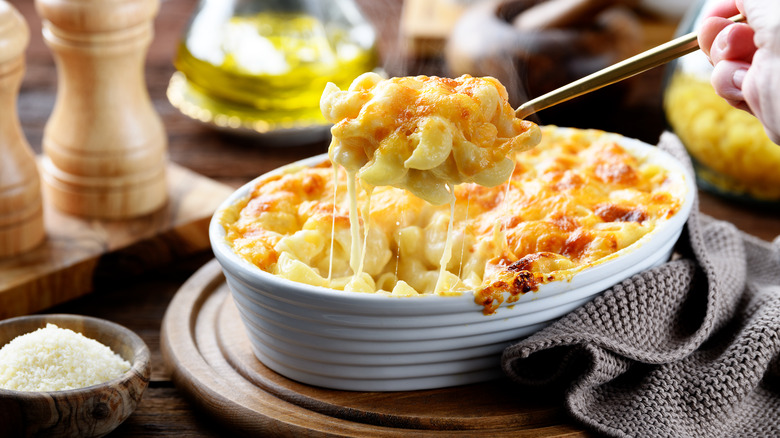
Gordon Ramsay’s worst meal ever might shock you, even a decade later. Why? Let’s just say it … hits close to home. In 2015, when asked on “The Late Late Show with James Corden” which meal he considered his “worst,” the chef’s response sent the audience into a hilarious frenzy. His answer came fast. “Mac and cheese, at last year’s audition show for ‘MasterChef.'” Sounds harmless enough, right? Well, think again, as this wasn’t any ordinary mac and cheese.
Ramsay shared that he found the dish to be particularly sweet, but assumed the aspiring chef used almond milk to make hers. However, the twist was that she used breast milk. Ramsay’s verdict was blunt. “Not good,” he quipped. He added that it might have been less awful with proper seasoning, since there was no salt, and the texture leaned curdled.
Now, as most know, macaroni and cheese is a staple comfort food that has stood the test of time. And yes, there are indeed ingredients that will upgrade your mac and cheese. But breast milk is not one of them. Instead, you can add some canned cream soup for a rich flavor boost. Mac and cheese is also a relatively simple, foolproof dish to make, and sometimes, less is more. Nonetheless, let’s widen the lens a bit.
Mac and cheese doesn’t have to be complicated

Part of the reason Gordon Ramsay’s story about breast milk-infused macaroni and cheese endured is simple television math. Competitive cooking shows, like most reality television, chase surprise and virality. Ramsay has eaten fish eyes, a snake’s heart, and other things on camera, but the breast milk mac and cheese is a bit different. It turns everyday comfort food into a bit of a stunt, and the sensory cues fight each other: sweetness where you expect savory, and the absence of salt to balance the dairy, is an interesting twist. Not to mention the texture tipping from creamy to curdled. In his defense, any one of those issues could sink a bite. But all three at once made it memorable for the wrong reasons.
There is also the cultural layer. Breast milk is normal and nourishing in its intended context, yet using it in a public cooking audition pushes against audience expectations and food safety norms that producers and judges have to weigh. Even Ramsay’s follow-up line hints at a cook’s view first. If you don’t season properly, no amount of novelty will save you. The lesson is not about shaming an ingredient, though, but more about the craft. Know your audience, season your food, and resist the urge to chase a twist that overwhelms taste. After all, even a simple, two-ingredient mac and cheese can pack some seriously delicious savory taste — no breast milk required!
